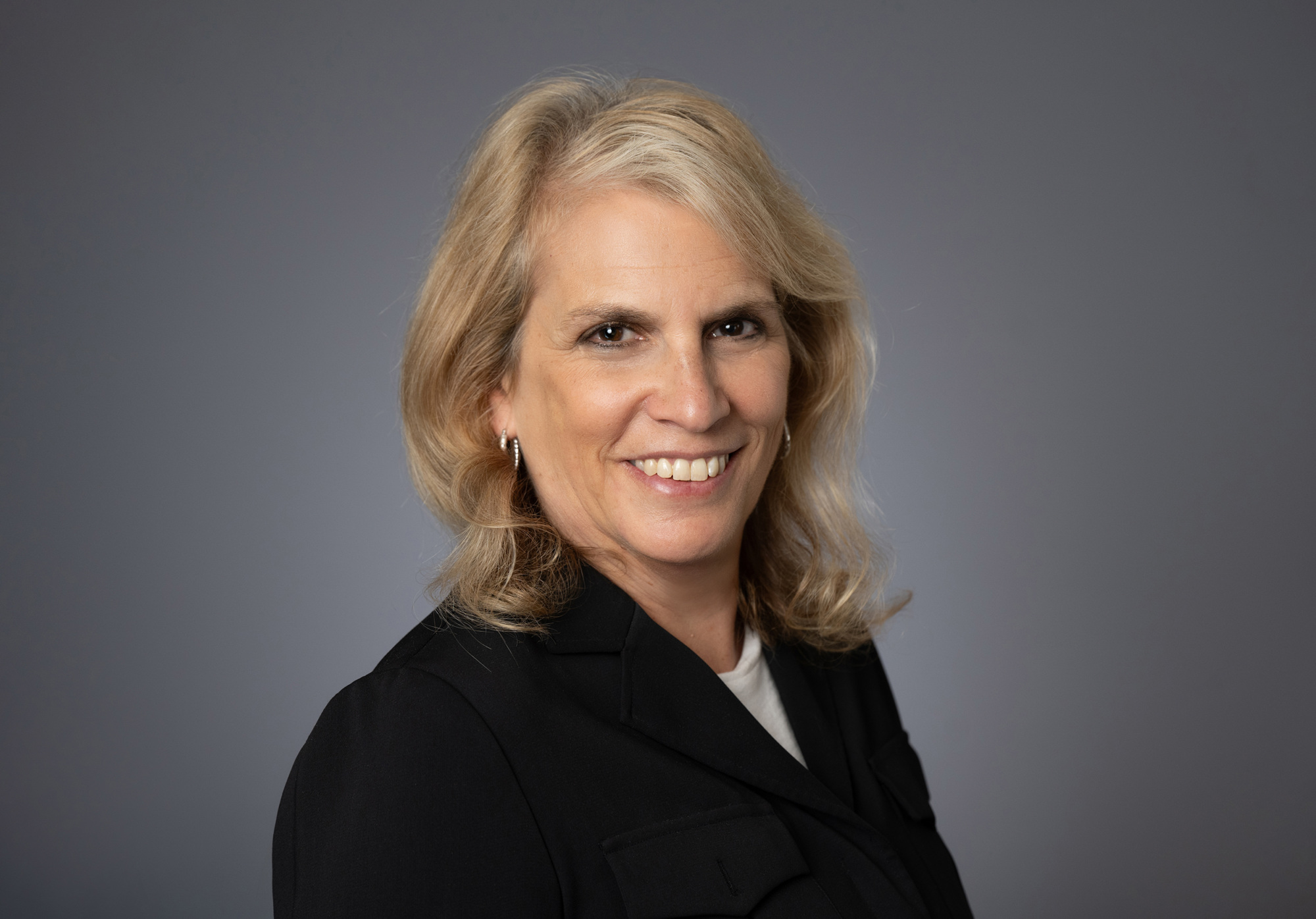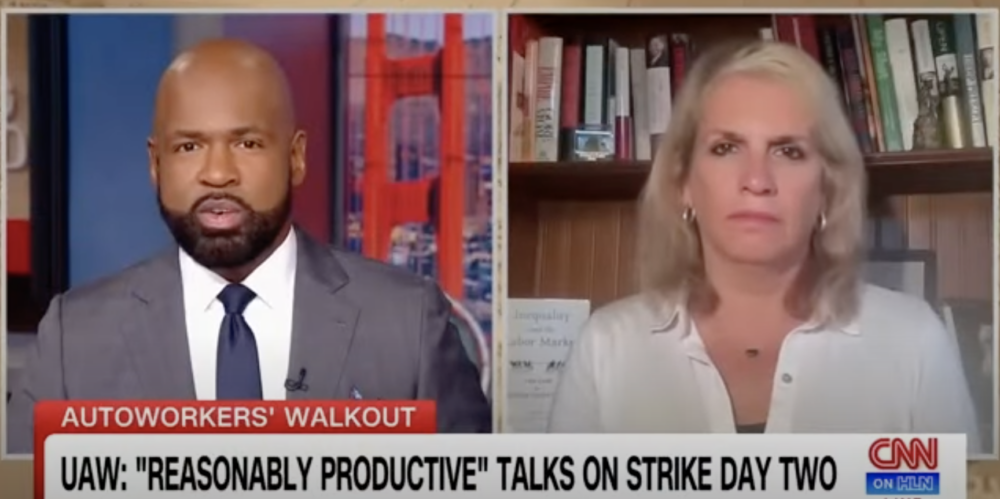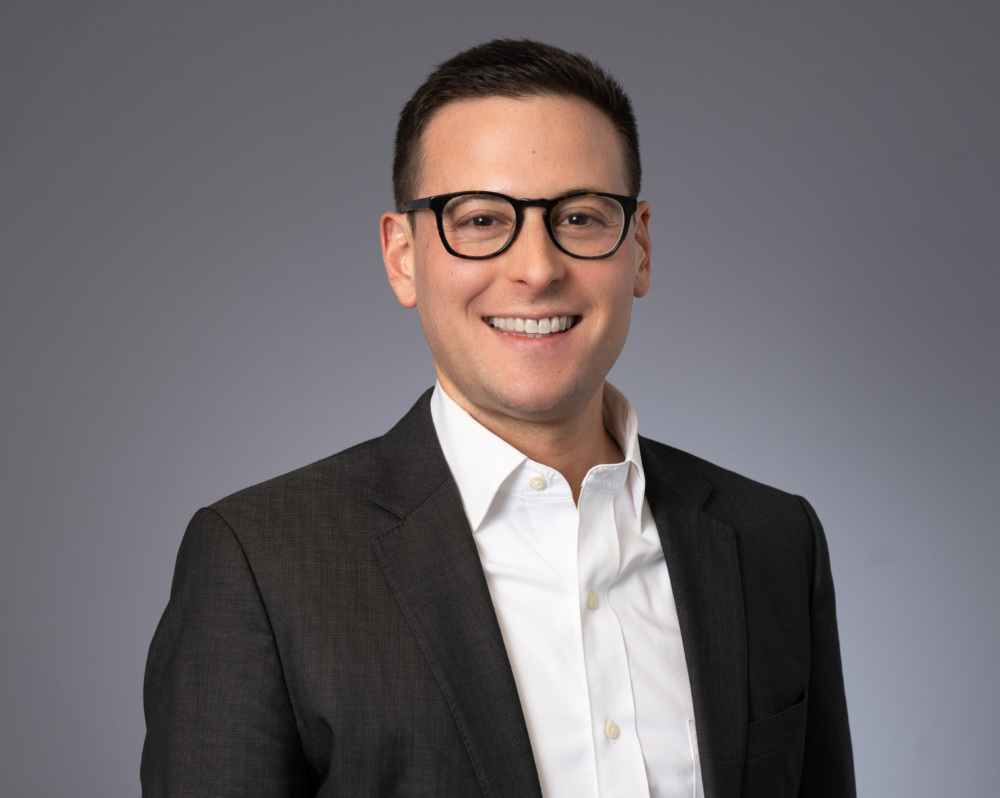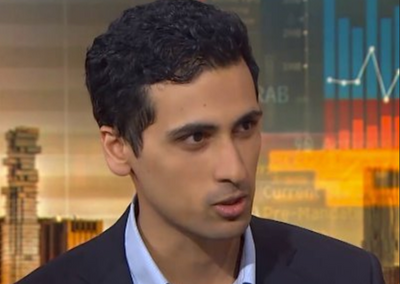

Sharon Block
Professor and Executive Director of the Center for Labor and a Just Economy,
Harvard University Law School
Cambridge, MA
Experience
- White House (Biden and Obama administrations)
- Office of Information and Regulatory Affairs
- Department of Labor
- National Labor Relations Board
Expertise
- Organized labor and strikes
- Labor and employment law
- Regulatory policy
Education
- Georgetown University, J.D.
- Columbia University, B.A.
Recent Coverage
DEC 2, 2023
HuffPost: New Unions Have Won Historic Elections. Winning First Contracts Is Even Harder.
Sharon Block, a labor law professor at Harvard University, said this year’s successful strikes and organizing campaigns can mask how “broken” the collective bargaining system is, particularly for neophyte unions trying to get their first contractual commitments from the employer. “The union is at its most perilous when it’s first organizing. If you think about what it takes now, it just shouldn’t be this hard,” Block said. “There’s just nothing in the law that pushes [a company] in getting to a first contract.”
NOV 23, 2023
LA Progressive: Even As Public Support for Unions Grows, U.S. Laws Favor Employers
Moreover, “The politics are really difficult,” said Sharon Block, a professor and the executive director of the Center for Labor and a Just Economy at Harvard Law School. “Anyone who would tell you they’re optimistic that big labor law reform is going to pass in the near term is either not being truthful or is delusional.”
NOV 14, 2023
HuffPost: Starbucks Insists It Isn’t Union-Busting. A Growing List Of Rulings Say Otherwise.
An NLRB spokesperson said the agency does not compile employer-specific data on unfair labor practices. But Sharon Block, a former board member who is now a professor at Harvard Law School, said she was stunned by the breadth of the decisions against Starbucks. “I haven’t done the kind of deep data dive to say it for sure, but I would bet that there is no other company that has amassed this many violations” in a similar time period, she said. “It just paints a picture, when you put it all together, of a company that is absolutely willing to violate the law in order to avoid having to deal with this union.”
NOV 11, 2023
Boston Globe: As more workers take to picket lines, the labor movement is having a moment
“The weakness of the law is just so apparent,” said Sharon Block, a former Biden administration official. “The ability of an Amazon to just be like ‘No, we’re not going to bargain. We’re just not doing it.’ Same thing with Starbucks.” This is critical because, with only 10.1 percent of all workers in a union, the labor movement needs to grow, she said: “Considering how much the economy has changed, we need pathways to expanding union membership in new sectors.”
OCT 5, 2023
Fast Company: Why the childcare industry isn’t unionized
“It’s very, very difficult for low-wage workers to organize,” says Sharon Block, executive director of Harvard Law School’s Center for Labor and a Just Economy. “One, it just takes time. And [for] people who are low-wage workers, time is a luxury that most of them don’t have—because they need to be working all the time in order to support themselves.
OCT 5, 2023
Harvard Business Review | Are We Seeing a Revival of Union Power?
Sharon Block: “I hope that corporate leaders are rethinking the reflex to try to minimize labor costs at the expense of their relationship with their workforce. This summer’s strikes are demonstrating that workers are willing and able to say “enough.” Companies can avoid a lot of public ill will and strife if they think about whether their workers are getting a fair share of the companies’ success before increasing CEO pay or embarking on yet another round of stock buybacks.”
SEP 27, 2023
BBC | How ‘strike culture’ took hold in the US in 2023
“This is certainly the biggest moment for labor, and the most active period that I’ve seen in my career,” says Sharon Block, executive director at Harvard Law School’s Center for Labor and a Just Economy. “There was a shift among US workers about what’s acceptable in terms of conditions to accept, about their own worth in the workplace, and about standing up for themselves when those two things don’t match up,” says Block.
SEP 4, 2023
The Hill | We’re experiencing a post-inflation, AI, and climate-driven labor revolution (Opinion)
“The judiciary is doing more than just slowing down protections for workers; it is obstructing protections. The activist, Republican-dominated Supreme Court majority has made up a doctrine that assigns the court the power to overturn any executive branch regulations that they deem to be economically or politically significant. During the pandemic, the conservative majority used this new doctrine to invalidate a regulation to protect workers from COVID-19 exposure in the workplace. The Supreme Court has become a partner with big corporations in achieving big business’s desire to roll back Biden’s regulatory agenda — even when that agenda aims to protect workers from today’s most urgent challenges.”
SEP 2, 2023
The Guardian | US labor movement celebrates new regulation to counter union-busting
Sharon Block, professor of practice and the executive director of the Center for Labor and a Just Economy at Harvard Law School, said: “It addresses … the two biggest problems with union elections right now … that they take too long and that employers actually have incentive to violate the law during the campaign.”
Block added: “This is an important decision in trying to make what I would believe is sort of a flawed law work as well as possible. Addressing twin problems of the way and the incentive to unlawfully union-bust is incredibly meaningful. I think unions will be able to devote more resources to getting to elections quickly.”
AUG 30, 2023
Washington Post | Overtime pay would cover millions more workers under proposed Biden rule
Sharon Block, a labor law professor at Harvard Law School, who led the Obama administration’s efforts to increase overtime benefits, said in a statement that the Biden administration’s proposed rule demonstrates “the fact that elections have consequences.”
“The consequence of the Trump administration was that millions of workers lost the right to a fair wage and the consequence of the Biden administration is that millions of workers will regain that right,” Block said.
AUG 18, 2023
Capital & Main | Striking Workers Face Another Opponent: U.S. Labor Laws
“If you look at the reasons why domestic workers and agricultural workers were excluded from the National Labor Relations Act, it is absolutely shameful that those exclusions still exist,” said Sharon Block, a professor and the executive director of the Center for Labor and a Just Economy at Harvard Law School. “They were based on racist reasons — not even subtly, almost explicitly.”
We have a very different economy, a different mix of manufacturing and service, urban and rural — almost every way you’d imagine — since the 1930s,” Block said. “They had big factories where everybody passed through the same door, spent eight hours together. They could talk; they could organize themselves. Now you have workers who never see their co-workers. It’s just completely different, and we’ve made no forward progress in thinking about ways to better empower workers since then.”
Interested in speaking with Sharon Block?
About Sharon
Sharon Block is a Professor of Practice and Executive Director of the Center for Labor and a Just Economy at Harvard Law School. Prior to returning to Harvard, she led the Office of Information and Regulatory Affairs in the Biden White House. She also served as a senior advisor to the Biden-Harris Transition team, providing advice to the OMB and Labor Agency Review teams on labor, worker empowerment and regulatory policy and participating in briefing and hearing preparation for nominees.
From 2017 to 2021, Block led the Labor and Worklife Program. During this time, she launched the Clean Slate for Worker Power project, which is a comprehensive policy initiative focused on fundamental redesign of labor law with the aspiration to enable all working people to create the collective economic and political power necessary to build an equitable economy and politics.
For twenty years, Block has held key labor policy positions across the legislative and executive branches of the federal government. In the Obama Administration, she was the Principal Deputy Assistant Secretary for Policy at the U.S. Department of Labor and Senior Counselor to the Secretary of Labor Tom Perez. In 2012, President Obama appointed her to serve as a member of the National Labor Relations Board. While serving in the Obama White House as Senior Public Engagement Advisor for Labor and Working Families, Block led the historic White House Summit on Worker Voice, which explored ways for workers to fully participate in their economic future. At the President’s direction, Block also conducted a series of regional worker voice summits across the country. Prior to the Obama Administration, she was senior counsel to the Senate HELP committee under Senator Edward Kennedy, playing a central role in the debate over the Employee Free Choice Act.
Block writes frequently on labor, employment and administrative law topics. She is a senior contributor to OnLabor.org and her opinion pieces have appeared in the New York Times, Washington Post, Fortune, The American Prospect, The Hill, USA Today, Forbes, and Newsweek.





